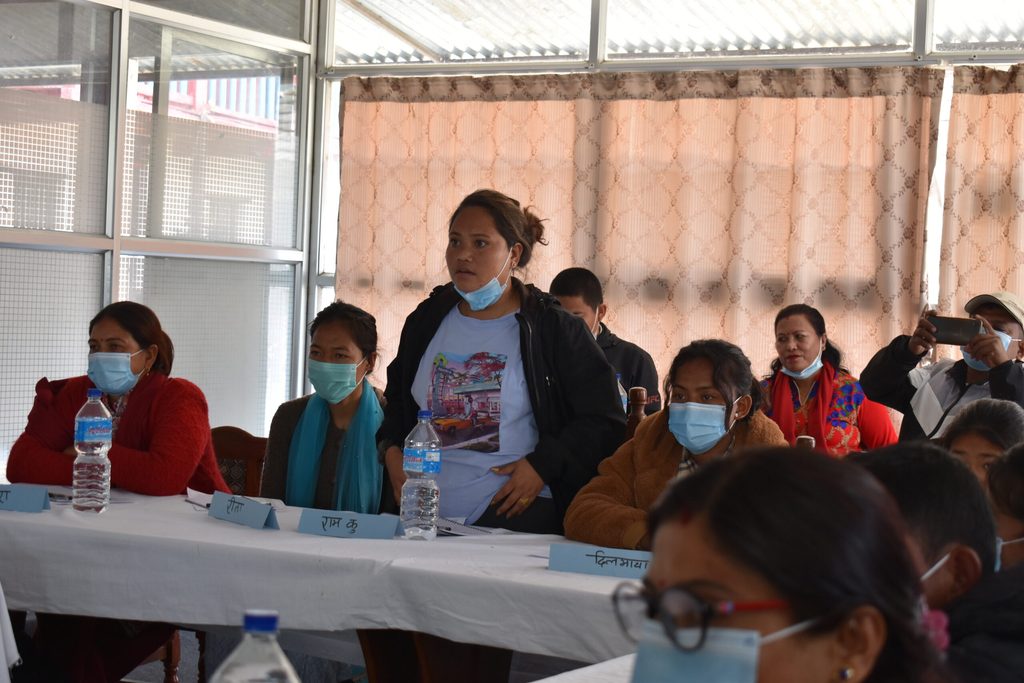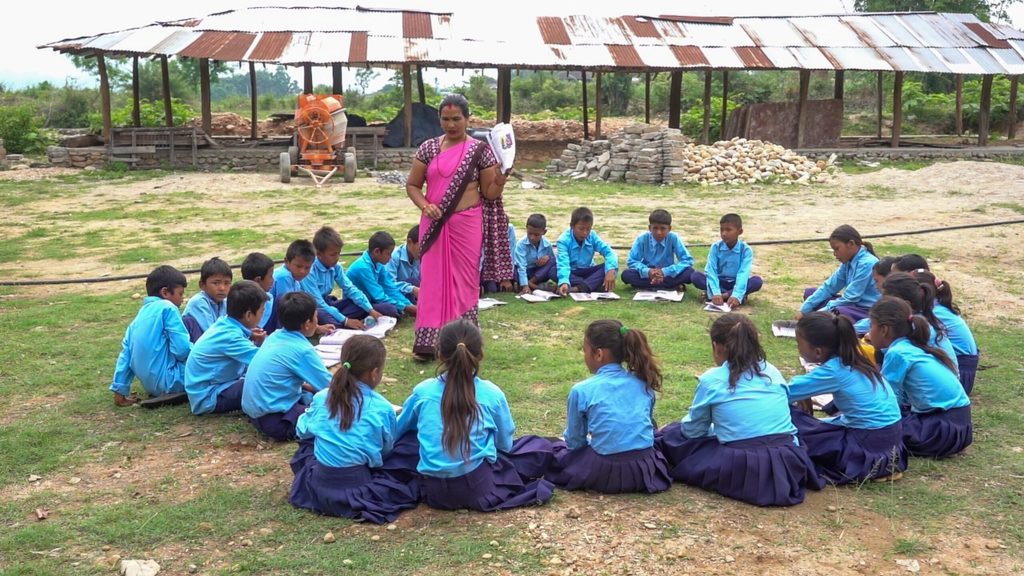Emerging female leaders for safe schools in Nepal
By supporting their schools to prepare for and respond to disasters, women are growing in confidence and taking leading roles in their community.
Ms. Ram Kumari Blon, is a teacher from Sindhuli, Nepal. She is part of a marginalised, male-dominated community in Nepal and has had limited chances to participate in decision-making processes.
Living in a society like this has caused uncertainty and insecurity. In addition, teaching and learning have been difficult in the past 2 years due to the impact of the COVID-19 pandemic. Schools remained closed and children and teachers were confined to their houses. The school management committee and teachers realised the need for a school disaster management committee. The group, in which girls are equally represented, was set up.

Women lead disaster risk preparedness
Ms. Ram Kumari was motivated to take on a leading role in identifying and reducing disaster risks in her school and community.
She shared, “I am very much glad about this position and the formation of the school disaster management committee. I believe it enables female participation, builds our leadership capacity and ensures our participation in decision-making in schools.”
She has since participated in training on school safety and first aid, and in different meetings. Her knowledge of disaster preparedness and response has expanded and she has many new skills.
“The training was special for me as it helped me to understand disasters, prepare for them and it enhanced my skills.”
Ms. Ram Kumari
She said, “Disasters like floods, lightning and wind storms frequently occurred in our community. I saw and experienced them but I did not understand them. The training was special for me as it helped me to understand disasters, prepare for them and it enhanced my skills.”
After the training, she took part in vulnerability and capacity assessments of her school.
Reducing the risk of flash floods
Mrs. Pramila Karki, who coordinates an advisory committee for a school disaster management committee in Sindhuli is another strong female leader in disaster preparedness. She played an important role in forming, training and running the committee.

She is a teacher at a school for more than 185 preschool students in an area which is prone to flash flooding.
Mrs. Karki said, “Usually, there is a frequent occurrence of flash floods on the east bank of our school in rainy seasons every year. We were worried about students’ safety just like their parents. However, we have limited knowledge, skills, and resources for immediate response. After attending the training organised by the Gender Responsive School and Community Safety Initiatives (GRSCSI) project, I found myself more confident to share proper information and messages to students and their parents.”
She also expressed her happiness about seeing more women taking on leading roles in her community. Further, she admires the support received from the project for improving the school’s safe learning environment. She believed these initiatives would increase the participation of females and girls in decision-making on disaster risk reduction.
With increasingly safe and resilient school environments in place, we believe more children and teachers will feel secure studying and working. In addition, with more female leadership, we will see equal opportunities within schools and wider society.
After the second wave of COVID-19 in September 2021, the Gender Responsive School and Community Safety Initiative (GRSCSI) from Plan International Nepal and partner organisation HANDS Nepal was launched to support schools and communities to identify and reduce disaster risks. GRSCI is a three-year project implemented in Nepal and Bangladesh. Teachers and SMC members also participated in the gender-responsive DRR/CCA trainings, where School Safety Champions and Climate Smart Safe School Champions were selected and trained. The project also provided equipment for DRR/CCA learning center such as laptops, TVs, and extra-curricular activities (drama, drawing competitions, mock drills, etc.) to further encourage active participation.
Categories: Emergencies, Youth empowerment



